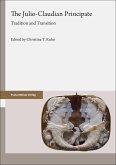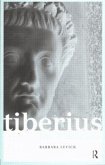In "Tiberius the Tyrant," John Charles Tarver masterfully navigates the treacherous waters of Roman history, providing an intricate portrait of one of antiquity's most enigmatic figures. Tarver's literary style is characterized by rich, evocative prose that immerses the reader in the socio-political landscape of early imperial Rome. Through meticulous historical research and compelling narrative techniques, he chronicles Tiberius's tumultuous reign, exploring themes of power, paranoia, and betrayal against the backdrop of a crumbling Republic. The book is a vital contribution to both biographical and historical literature, positioned within the broader discourse on tyranny and governance, emphasizing how personal virtues and vices can shape national destinies. John Charles Tarver is not only an accomplished historian but also a passionate advocate for Classical studies, which informs his nuanced understanding of Tiberius's complexities. His scholarly background and extensive travel in Italy's historical sites provide a palpable authenticity to his writing, enhancing the reader's experience. Tarver's fascination with the moral ambiguities inherent in leadership likely motivated him to delve into Tiberius's psychological landscape, making the subject both relevant and enlightening for contemporary readers. "Tiberius the Tyrant" is highly recommended for those interested in the intersection of history, psychology, and political theory. Scholars, students, and history aficionados alike will find Tarver's insights valuable, as he invites readers to reconsider the implications of tyranny and the dynamics of power, making it a thought-provoking read that resonates well beyond the pages of history.
Bitte wählen Sie Ihr Anliegen aus.
Rechnungen
Retourenschein anfordern
Bestellstatus
Storno








